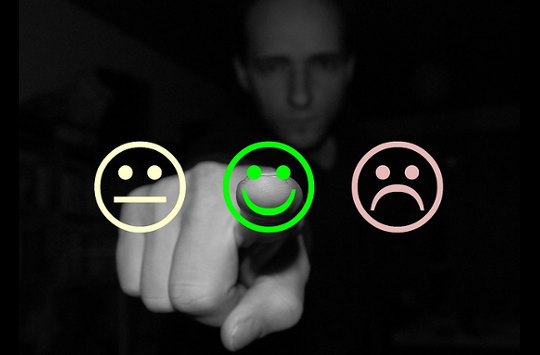
Image by Tumisu
What is the role of society and what are the psychological reasons that are likely to make some people prone to feeling fake or phony? Understanding these factors will help you to recognize why you may have developed your own feelings of imposterism and to appreciate that this is not your fault; it is not a weakness or failing to have Imposter Syndrome.
On the contrary, society today seems to be set up to foster Imposter Syndrome, so it is no wonder that so many of us experience it.
The Vital Role Of Self-Esteem
What is the difference between self-esteem, self-confidence and self-belief? Self-confidence is related to what we feel we can do or are good at, whereas self-belief refers to what we believe is true about ourselves. Self-esteem refers to how we see ourselves as a whole, rather than specific elements of ourselves. It refers to how much approval, acceptance and worthiness we feel. Low self-esteem means thinking negatively about oneself.
One of the key underlying causes of an individual’s Imposter Syndrome is likely to be related to low self-esteem, self-belief and self-confidence. The whole raison d’être for the imposter is that you don’t feel that you are good enough; it is low self-belief, low self-esteem and a lack of confidence that leads to this conclusion.
Often this feeling of not being good enough (for what or who?) stems from childhood and becomes internalized as a ‘core belief’. These are beliefs or values about ourselves that we learn from others and unconsciously make part of our nature.
Of course, it is normal for everyone to have self-doubt at times and to lack confidence. In fact, to be over-confident is considered a problem, too, and even has a name: the Dunning-Kruger effect, which is a cognitive or mental bias of superiority used to describe a constant inability or unwillingness to recognize your own ignorance or lack of ability (more on this later, see p000).
But constant low self-esteem is not a healthy state to be in. It often leads to feelings of inferiority, hopelessness, sadness and depression, and may even predispose to suicide. And it has been shown to have a strong relationship with Imposter Syndrome.
The Self-Esteem-Imposter Syndrome Cycle
The self-esteem-Imposter Syndrome cycle is obvious. If you have a negative opinion about yourself then you are not going to think that anything you do is good enough. If there is evidence to the contrary, you are then left in a state of cognitive dissonance, struggling with two contradictory beliefs about yourself.
In order to resolve this uncomfortable feeling you have to change one of your cognitions (or beliefs); you can either change your core belief that you are ‘not good enough’ or change the cognition that you have evidence that you are good enough.
Core beliefs are incredibly difficult to shift so it is usually easier to change the belief that ‘there is evidence that I am good enough’ to ‘the evidence cannot be believed’ thinking ‘I only achieved this due to luck; I am an imposter really’.
But if IS is caused in part by low self-esteem, what causes that low self-esteem in the first place? Many reasons can be suggested to account for the development of that ‘not good enough’ core belief, including:
* Disapproving parents or authority figures
* Overly-controlling parents
* Lack of attention from care-givers
* Being bullied
* poor academic achievement
* Religious beliefs
* Being compared unfavourably with others
* Social comparison
* Appearance
* Abuse
The Role of Social Media
Around 70 per cent of us experience Imposter Syndrome at some point in our lives – and the instant and constant social comparison afforded by social media in the world today may play a huge part in this. It is interesting to note that 62 per cent of people claim that social media sites make them feel inadequate about their own life or achievements.
Social media is a great platform offering many benefits, but there are huge downsides to it as well. Some of the ways that it can contribute to Imposter Syndrome are include:
* People tend to post edited highlights of their lives
* Effort or struggles in attaining success are glossed over
* Social comparison with a huge range of people is possible
* Social comparison is instant and all pervasive
* Seeking the likes
Societal Expectation and Imposter Syndrome in Millennials
Millennials, also known as Generation Y, are the demographic group made up of people born between the early 1980s and mid-1990s, therefore reaching adulthood in the early 21st century. This group is the one thought to be most susceptible to Imposter Syndrome, not only because of technological advancements and digital progress within their lifetime (they are the first generation to experience internet and email as a normal part of their work life from day one), societal pressures and social media comparisons, but also because of their parents.
Unlike the generation before them, Millennials are the ‘trophy’ kids, raised by parents who praised them too much. These were the children who, stereotypically, began to get prizes just for participating, as society looked at the effects of not winning on fragile self-esteems.
The caricature would suggest that anyone aged about 40 or younger has a clutch of trophies and medals that they earned with very little effort at all, compared to their parent’s generation who had to work hard for such honours. This explains a recent newspaper lament that Millenials are struggling to cope in the real world because their experience is that ‘We got medals for coming in last’.
This can lead to great confusion for this generation. On the one hand, they are told they are a success – and have easily won medals to prove it. But on the other hand, these trophies seem to provide evidence of their phoniness – the real success demanded by their parents is not reflected in these ‘participation trophies’. According to the American Psychological Association this increases the risk of fraudulent feelings. Is it any wonder that this generation is growing up with Imposter Syndrome?
All this probably leaves Millennials as the generation the feels it has the most to prove. According to TIME magazine, Millennials report feeling inadequate, overwhelmed and judged as parents more than the two preceding generations – the Baby Boomers (born in the two decades following World War II) and Generation X (born between the mid-1960s and early 1980s).
And who knows what will happen with the following generation – Generation Z? We have yet to see whether they end up being a generation of ‘imposters’ – or whether increasingly awareness of the phenomenon will offer them some protection.
©2019 by Dr. Sandi Mann. Excerpted with permission
from the book: Why Do I Feel Like an Imposter?.
Published by Watkins Publishing, London, UK.
|www.watkinspublishing.com
Article Source
Why Do I Feel Like an Imposter?: How to Understand and Cope with Imposter Syndrome
by Dr. Sandi Mann Many of us share a shameful little secret: deep down we feel like complete frauds and are convinced that our accomplishments are the result of luck rather than skill. This is a psychological phenomenon known as 'Imposter Syndrome'. This book examines the reasons why up to 70% of us are developing this syndrome-and what we can do about it. (Also available as a Kindle edition.)
Many of us share a shameful little secret: deep down we feel like complete frauds and are convinced that our accomplishments are the result of luck rather than skill. This is a psychological phenomenon known as 'Imposter Syndrome'. This book examines the reasons why up to 70% of us are developing this syndrome-and what we can do about it. (Also available as a Kindle edition.)
Books by this Author
About the Author
 Dr Sandi Mann is a psychologist, University Lecturer and Director of The MindTraining Clinic in Manchester where much of her material for this book is derived. She is author of over 20 psychology books, her most recent being The Science of Boredom. She has also written and researched extensively about emotional faking, culminating in her book Hiding What We Feel, Faking What We Do. Visit her website at https://www.mindtrainingclinic.com
Dr Sandi Mann is a psychologist, University Lecturer and Director of The MindTraining Clinic in Manchester where much of her material for this book is derived. She is author of over 20 psychology books, her most recent being The Science of Boredom. She has also written and researched extensively about emotional faking, culminating in her book Hiding What We Feel, Faking What We Do. Visit her website at https://www.mindtrainingclinic.com
























